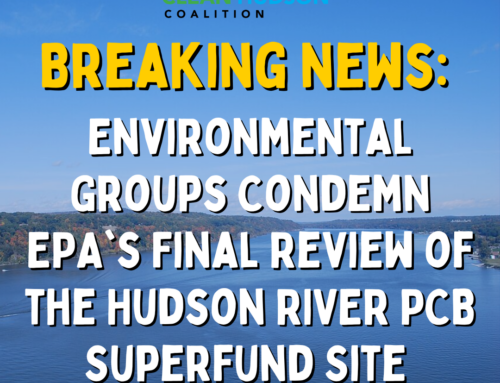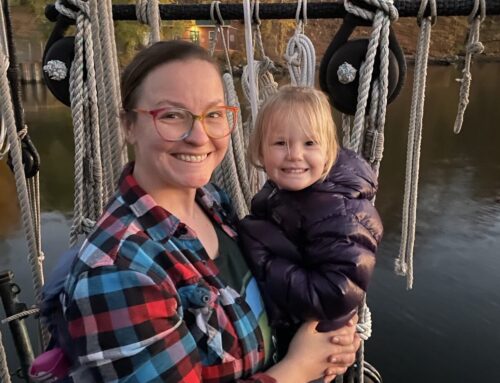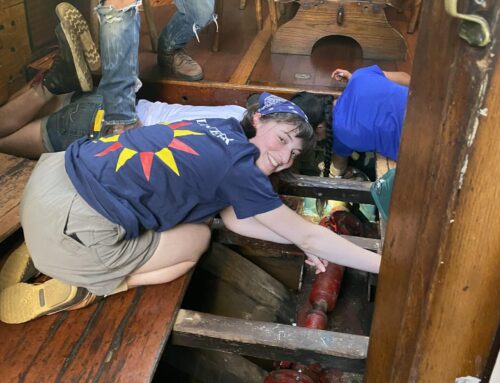“Get the Facts” Information Residents Need to Have
WHAT? A private, for-profit, multinational corporation wants to make homes and businesses throughout water-rich Rockland County pay to drink desalinized brackish water taken out of the Hudson River’s Haverstraw Bay. United Water New York (UWNY) is a subsidiary of the international Suez Environnement Group based in France. UWNY proposes build a first major desalinization plant in the moist Northeast on Haverstraw Bay. It would pipe treated Hudson River water into homes and businesses throughout Rockland County, greatly increase water costs and energy use, degrade the environment and drinking water quality, and create a destructive precedent for desalinization in water-rich areas that would reverberate throughout our region. With a DEC public hearing scheduled for March 6 and the public comment period closing on April 20, it’s urgent to focus public scrutiny on this proposal now. To that end the citizens ‘group Rockland Water Coalition is presenting a public information meeting on February 23. The media is invited to cover, and we are also asking that media outlets discuss the issue before February 23 and announce the meeting in time for your audiences to consider attending, especially in light of some current information to be discussed there. Some this information will be new to you, and is briefly summarized in the WHY? section below.
WHO? The following experts and advocates are available for interviews now on what New Yorkers need to know about the Rockland desalinization plant:
•Bob Dillon — associate member, Rockland County Water Quality Committee; member, Rockland Residents Against Flooding Tomorrow (RAFT); member, Rockland Water Coalition
•Manna Jo Greene –Environmental Director, Hudson River Sloop Clearwater
•George Potanovic, Jr. –President, Stony Point Action Committee for the Environment (SPACE); member, Rockland Water Coalition
•Laurie Seeman — associate member, Rockland Water Quality Committee; member, Rockland Water Coalition
WHEN AND WHERE? These and other locally based experts and advocates are available for phone or in-person interviews now. The February23 “Get the Facts” meeting on the Rockland Desalinization Plant will be held at the Clarkstown Town Hall, 10 Maple Avenue, New City, New York. At 6:30pm there will be a letter-writing session, followed at7pm by an informational panel and Q&A session. The meeting is free and open to the public.
WHY? Like Rockland’s water, the flow of reliable information to those who need it is also threatened by UWNY and its proposed desalinization plant. DEC public comment on the project is open now and closes in just two months, on April 20. The DEC will hold public hearings on the matter March 6 (at 2pm and 6pmat Haverstraw Town Hall; One Rosman Road, Garnerville, New York). Meanwhile, it has been left to local citizens’ groups to point out the problems with the proposal, leaving area residents with a steep learning curve on a complex issue to climb fast. Examples of points that need airing now include:
Public health threats: Haverstraw Bay is brackish, has industrial discharge and is not classified by New York State as a drinking water source. The desalinization plant’s intake of River water would be sited 3.5 miles from the Indian Point nuclear plant, which is leaking tritium and strontium-90 and other radioactive isotopes into the Hudson River. Tritium cannot be removed by the plant’s reverse osmosis process. Low levels of strontium-90 have been found in test results of pilot plant. Health and safety impacts of such low-level exposures in drinking water have not been adequately assessed. Suez Environnement Group’s parent company GDF Suez is a major owner/operator of nuclear plants.
Environmental threats: Sucking out 10million gallons of water and injecting 92,000 gallons of wastewater a day, desalinization would damage the sensitive, critical habitat of Haverstraw Bay, expressly violating existing water resource conservation and coastal management plans, and further compromising declining fish populations, including Atlantic sturgeon which are on State and federal endangered species lists. Residents are also concerned it would accelerate overdevelopment of an area already burdened with heavy development pressures.
Senseless expense: Desalinization is the most energy-intensive and expensive form of drinking water there is, and UWNY has testified about possible “rate shock” when consumers get the bill. Desalinization should be a last resort for arid places with no choice. But Rockland is water-rich and has large reservoir that together with groundwater sources should adequately supply residents’ needs given proper management. If Rockland needs more fresh water, conservation, green stormwater infrastructure practices and water recycling can provide it without resorting to an extremely expensive, energy-intensive desalinization plant. So why build one?
Selling Rockland County’s water to New Jersey: United Water New York is owned by Suez Environnement which profits from privatizing water resources around the world and made over $18 billion in 2010. If it builds the new plant, Rockland residents would bear the capital costs, while UWNY would charge them for the desalinated water. Meanwhile UWNY and its affiliate United Water New Jersey also make money by discharging water from Rockland’s DeForest Lake Reservoir into New Jersey, where residents pay to use it. With more of Rockland’s water coming from a desalinization plant, less would be drawn from the DeForest Lake Reservoir, leaving more of its water to spill into New Jersey for use there. United Water has a history of sending much more of the Reservoir’s water to New Jersey than its discharge permit allows, and was fined by the NYSDEC for doing this in 2007. Data from the United States Geological Survey indicates excess releases from Lake DeForest to New Jersey have continued for decades, and between 1991 and 2007 United Water took roughly double the permitted limits. Yet when the reservoir was built, the NYS authorization for it stated that it was to be “operated solely for the benefit of the citizens of Rockland County. The only benefit to the Hackensack Water Company (United Water New Jersey) and the people of New Jersey is the incidental benefit of a regulated flow in the river.” The desalinization project pits the interests and water rights of Rockland against New Jersey, with United Water profiting at both ends.
For more information, contact Manna Jo Greene , Clearwater Environmental Action Director, mannajo@clearwater.org, 845 265 8080, ext.7113
or Stephen Kent, skent@kentcom.com , 914-589-5988





